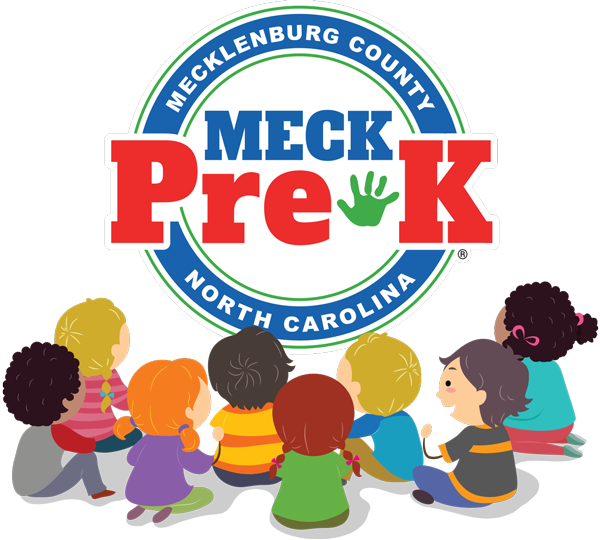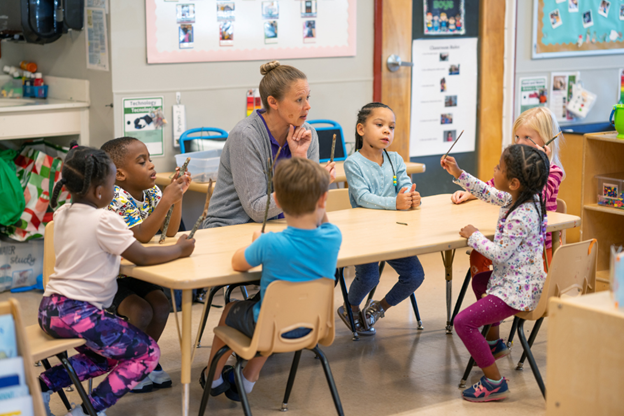5 Benefits of In-Person Pre-K for Your Child’s Growth and Development
As a parent, you’re always looking for the best ways to support your child’s growth and prepare them for success. One big decision is whether to send your child to pre-K or keep them at home. While homeschooling offers some flexibility, research consistently shows that high-quality in-person pre-K programs provide significant benefits for children. Here are five reasons why enrolling your child in pre-K might be the best choice for their development.
- Social-Emotional Development
One of the most significant benefits of in-person pre-K is the opportunity for children to build social-emotional skills. In a structured environment, kids learn to interact with peers and adults outside their family. They practice sharing, taking turns, resolving conflicts, and understanding emotions.
A study published in Education Week revealed that children in full-day pre-K programs demonstrate stronger social-emotional development and are nearly three times less likely to repeat a grade compared to their peers. Activities like group play and collaborative projects foster emotional resilience, empathy, and teamwork, preparing children for future academic and social settings.
- Academic Readiness
Pre-K programs focus on foundational skills like counting, letter recognition, and basic problem-solving. These early academic experiences lay the groundwork for future learning. Pre-K students are introduced to:
Basic Literacy Skills: Connecting sounds to letters, recognizing words, and developing vocabulary.
Math Fundamentals: Counting objects, recognizing numbers, and understanding shapes and patterns.
Critical Thinking: Solving simple problems and asking questions to explore new ideas.
Children who attend high-quality pre-K are more likely to succeed academically, as these early lessons help them transition smoothly into kindergarten and beyond.
- Long-Term Success
The benefits of pre-K extend well beyond early childhood. Research from the U.S. Department of Education shows that children who attend pre-K are more likely to graduate high school, attend college, and achieve career success. Moreover, studies indicate that pre-K participants are less likely to require special education services or be held back a grade.
Long-term studies also highlight other benefits, including reduced likelihood of criminal behavior and substance abuse. A report from the Tobin Center at Yale University found that access to universal pre-K can even improve family economic outcomes, offering a better financial trajectory for households.
- Structured Routines and Independence
In-person pre-K helps children adapt to structured routines and schedules, which are critical for academic and personal success. They learn to:
- Follow directions from teachers.
- Transition between activities.
- Manage their belongings and complete simple tasks independently.
This environment fosters a sense of responsibility and self-confidence, which can be harder to achieve in a less structured homeschool setting. Additionally, having a daily routine provides stability and helps children feel secure, which is especially beneficial during their formative years.
- Access to Qualified Educators and Resources
High-quality pre-K programs are staffed by licensed teachers and trained assistants who specialize in early childhood education. These professionals use evidence-based teaching methods to support each child’s unique learning style. In addition, pre-K classrooms are equipped with age-appropriate resources, such as:
- Hands-on learning materials.
- Safe play areas for gross motor skill development.
- Art supplies to encourage creativity.
At home, replicating this environment can be challenging without significant time, effort, and cost. Pre-K provides a well-rounded experience designed to nurture all aspects of a child’s development.
Tips for Parents Considering Pre-K
Research Your Options: Look for high-quality programs in your area. MECK Pre-K, for example, offers free, high-quality pre-K for four-year-olds in Mecklenburg County.
Get Involved: Attend open houses or meet with teachers to understand the curriculum and environment.
Support at Home: Complement pre-K learning by reading with your child, practicing counting, and encouraging creative play.
Final Thoughts
Deciding whether to send your child to pre-K or keep them at home is a personal choice, but the research is clear: high-quality, in-person pre-K programs provide significant advantages for children. From social-emotional growth to long-term academic success, the benefits of pre-K can set your child on a path to a bright future.
About MECK Pre-K
MECK Pre-K is a high-quality pre-K program open to all four-year-old children in Mecklenburg County at no cost to families. Classrooms are located in licensed childcare centers and taught by licensed teachers and highly qualified assistant teachers. You can apply online at MeckPreK.org.
Do you have a child who is not old enough for pre-K this year? Sign up for our email list and be notified when they’re eligible for MECK Pre-K. Simply go to MECKPrek.org/future-meck-pre-k-students and select your child’s age group.

